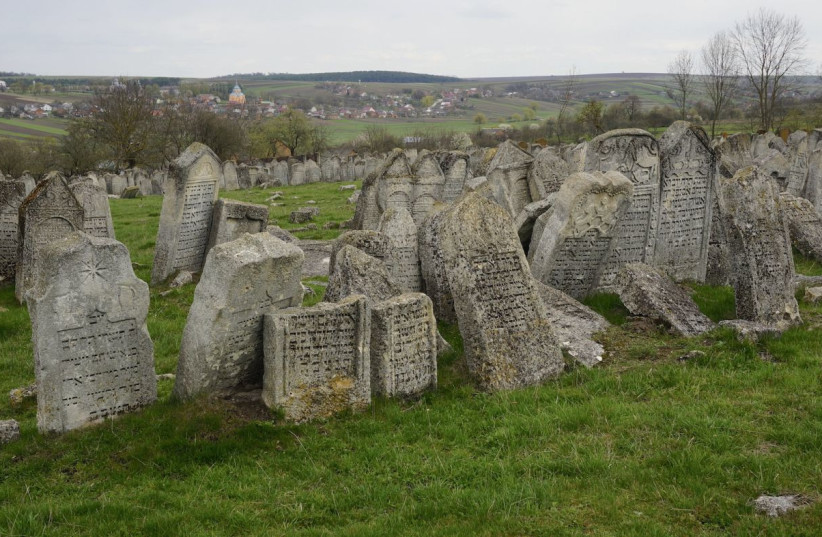A number of positive steps have been taken in the past year to combat antisemitism, according to a new report by the Kantor Center for the Study of Contemporary European Jewry at Tel Aviv University.
The report, titled Positive Trends in Fighting Antisemitism and Radicalization around the World, was presented to President Isaac Herzog on Thursday as International Holocaust Remembrance Day was marked.
Among the positive trends and events presented in the report were trends in the legal arena around the world, action by sports associations to combat antisemitism among fans, improving relations between Gulf countries and Israel, the restoration of Jewish cemeteries and action by governments to protect Jewish communities and fight antisemitism.
Concerning the legal arena, the report highlighted rulings by several national courts across Europe against hate speech, the addition of hate speech and hate crimes to the EU Crimes list and laws passed by US states to counter rising antisemitism such as a ban on the sale or display of hate symbols in New York and a hate crimes statute introduced in California.
Concerning sports, the report highlighted a pledge by the English Football Association to adopt the International Holocaust Remembrance Alliance’s (IHRA) definition for antisemitism, with football teams in England following suit. The Chelsea Football Club launched a new website entitled "Say No to Antisemitism." Meanwhile in the US, the professional career of NBA player Meyers Leonard ended after he made antisemitic slurs during a video game stream.

The report also pointed to efforts by young people in Poland, Slovakia, Ukraine and elsewhere to restore Jewish cemeteries as they showed interest in their countries' multicultural past and former life among Jewish neighbors.
Among governments and organizations, over 800 bodies around the world have adopted the IHRA definition of antisemitism since 2015, with a large number adopting the definition in the past two years. Special envoys have been appointed in several European countries to monitor and combat antisemitism. The Canadian government allocated $5 million to protect Jewish communities and promote the adoption of the IHRA definition.
Pope France made a number of declarations and statements strongly denouncing antisemitism, as well.
In the Gulf, a Holocaust memorial exhibition was launched at the Crossroads of Civilizations Museum in Dubai in May 2021. A synagogue has been operating openly in Dubai since late 2018 and the Jewish community in the United Arab Emirates already numbers over 1,000 members.
The House of Ten Commandments synagogue in Manama, the capital of Bahrain, was reopened in March 2021 and the first celebration of Shabbat services since the late 1940s was held in Bahrain in August.
Each chapter in the report ends with a series of recommendations for organizations and government to enhance their fight against antisemitism. The recommendations included establishing a website providing comprehensive information and guidance on restoring Jewish cemeteries, promoting Holocaust education in the Arab world, establishing mechanisms to monitor governments' implementation of pledges to fight antisemitism and encouraging sports clubs in eastern Europe to combat religious intolerance.
"Discourse on antisemitism and radicalization usually focuses on troubling negative trends," said Prof. Uriya Shavit, head of the Kantor Center, Entin Faculty of Humanities at TAU. "We decided that a positive report, describing encouraging developments and activities, should also be published – for three reasons: expressing appreciation for those already active; impelling more governments and organizations worldwide to initiate similar activities; and promoting a discussion on concrete proposals for improving existing programs."
"The global antisemitism crisis is escalating, but the international fight against it is also intensifying," said Herzog. "We are witnessing many initiatives for combating antisemitism around the world, and we must encourage and foster these positive trends. Strengthening the light is just as important as fighting darkness. I thank the Kantor Center for its dedicated research and faithful work in monitoring antisemitism worldwide."
"It is extremely important to note the positive steps taken this year in the fight against antisemitism not only to recognize those involved but importantly so that they will serve as a role model for others,” said Arie Zuckerman, chairman of the Kantor Center's Executive Board. “The world needs a type of Horizon 2020 program to combat antisemitism and racism. A program that will incentivize governments, companies, sports unions, artists and others to initiate and act effectively against these phenomena that endangers not only their Jewish citizens but others as well."
